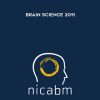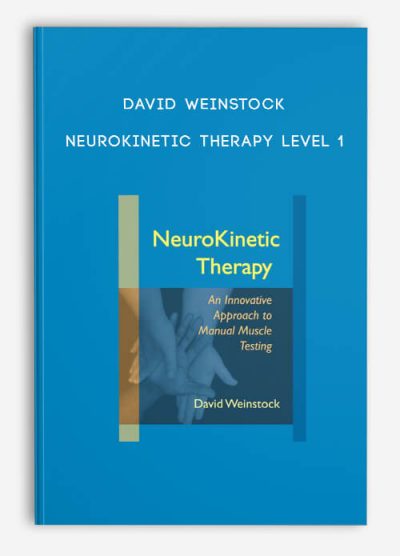David Weinstock – NeuroKinetic Therapy – Level 1 | Available Now !
$520.00
David Weinstock – NeuroKinetic Therapy – Level 1 | Instant Download !
PLEASE CHECK ALL CONTENTS HERE :
After an injury as occurred motor control impairments (MCI) often develop. If one fails to address these impairments in motor control, the chance of re-injury is increased. Assessing your patient according to the NKT protocol will guide you in your assessment and treatment so that you can find out which dysfunctions are important to treat and your treatment becomes more specific. It is also a great tool for reassessment.
Course Description
Manual muscle testing is employed to assess whether or not a muscle is strong/facilitated or weak/inhibited. You will learn to identify the common compensation strategies that often develop after injuries and decide whether these compensations are caused by reciprocal inhibition of a dysfunction in the kinetic chain. You will also learn to assess why a muscle is hypertonic, why joints are restricted, and why a muscle is testing weak/inhibited. Solving these inhibitions can relieve the patients symptoms and improve their functioning. You can combine the NKT assessment protocol with any release techniques you are already using, such as Anatomy Trains, Dry Needling, Fascial release and Anatomy in Motion.
Goals
You will learn:
- The function of the Motor Control Centre
- The assessment of imbalances/compensation strategies
- The treatment of imbalances/compensation strategies
- The use of the NKT corrective movement system protocol
- Identify whether a muscle is:
- Strong and lengthened (optimal)
- Strong and tight (increased chance of muscle strain)
- Weak and lengthened (hypermobility)
- Weak and tight (can lead to injury)
- Specific muscle testing according to the NKT protocol for the:
- Lower extremities
- Upper extremities
- Lower back & neck
1 review for David Weinstock – NeuroKinetic Therapy – Level 1 | Available Now !
Add a review Cancel reply
Related products
Ecommerce
Ecommerce
NLP & Hypnosis
Ecommerce
Ecommerce
NLP & Hypnosis












Charity Hickman –
This is Great ! | David Weinstock – NeuroKinetic Therapy – Level 1